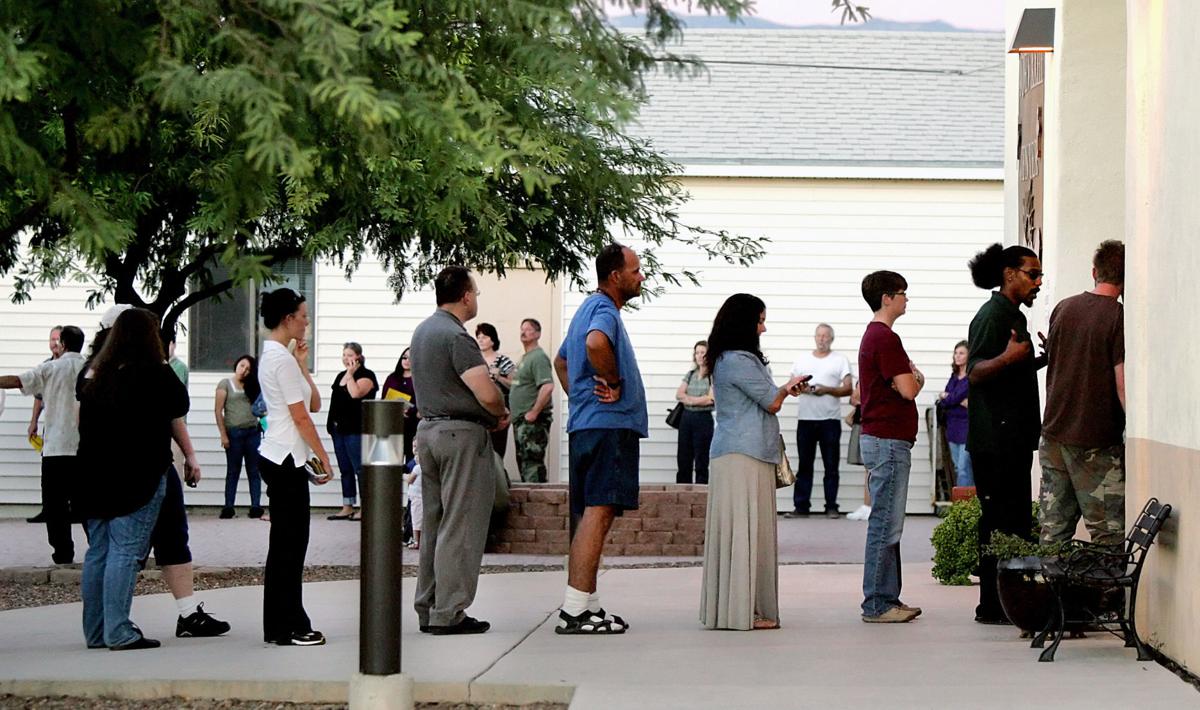PHOENIX — A claim by Democrats that refusing to count ballots cast in the wrong precinct is illegal racial discrimination met with a skeptical reaction Wednesday from a panel of federal judges.
Attorney Elisabeth Frost argued there is statistical data showing minorities are more likely to show up at the wrong polling place. And she said that is the result of historical patterns of housing discrimination in Arizona.
But Judge Sandra Ikuta of the 9th Circuit Court of Appeals said she’s not sure that’s enough to overturn existing Arizona laws that say that ballots turned in on election day are counted only when cast at the proper precinct.
Factors cited by the Arizona Democratic Party and its allies include things like minorities having a greater tendency to rent and being more likely to move more often. Frost said that results in minorities being more likely to not know where they are supposed to vote, turning up in the wrong precinct and casting a ballot that is not counted.
“So where’s the racial discrimination here?” Ikuta asked, suggesting these are socioeconomic issues.
Frost cited a study done for the party.
“If you’re Hispanic, you are twice as likely to be disenfranchised this way,” she told the court.
“If you’re a Native American, I think the numbers are higher,” Frost continued. “If you’re African-American your odds are much more likely to be disenfranchised this way.”
The fight is over the policy in most counties that requires voters to show up at a specific precinct if they want to cast a ballot on election day. Some counties, like Yavapai and Yuma, have “voting centers” allowing residents to show up at any location and get a custom-printed ballot.
If the person is not on the official poll list, he or she can be given information on where they should vote, something that may not always happen. In any event, if the person still insists on voting he or she is given a “provisional” ballot that is placed aside.
Those ballots are counted if it turns out the person was in fact registered and entitled to vote at that location. If not, the ballot is discarded, even if the person is registered to vote, albeit somewhere else.
Frost said nearly 11,000 such ballots were not counted in 2012.
Democrats are hoping for what amounts to an emergency order from the court forcing election officials to count the votes on races where it should be irrelevant where the ballot was cast.
The most obvious of those would be the races for president and senate, which are statewide offices. But it also could result in having to find and tally votes for not only statewide ballot measures but even congressional, legislative and school board races.
Brett Johnson, attorney for the Arizona Republican Party and several GOP lawmakers, urged the appellate judges to uphold a lower court ruling that concluded there was no evidence the policy is due to racial discrimination.
He also told the appellate judges there is “evidence they don’t want you to hear about,” including the publicity by state and local officials to tell voters where they need to go to have their ballots counted.
Frost did not specifically dispute those efforts, though she cited instances of some people being given incorrect information. Worse yet, Frost cited one case where a woman showed up where she was told but was not told by poll workers there she was not at the right precinct.
“She was not told the ballot wouldn’t count,” Frost told the court. “She thought she effectively voted.”
One issue that appeared to concern the appellate judges is how difficult it would be for counties to have to tally out-of-precinct votes.
Assistant Attorney General Karen Hartman Tellez said it would be a logistical nightmare, as ballots cast in the wrong precinct would also include votes for candidates who the person would not otherwise be eligible to vote. That might include someone who lives in one legislative district but casts a ballot in an adjacent district.
Hartman Tellez said the only way to ensure that only the proper votes would be counted would be to manually create a new ballot for each out-of-precinct ballot and marking only the races for which the person would otherwise be eligible to cast a vote. She said that could take up to 15 minutes per ballot.
Chief Justice Sidney Thomas said it should not be that difficult. He said all it would take is running the provisional ballots through a separate computer that had been programmed to count only certain races.
Johnson, however, urged the judges not to intercede — and certainly not less than two weeks ahead of the Nov. 8 election — saying it “will lead us down the road of chaos.”
The August primary shows the issue is more than academic.
A close vote in the Republican primary for Congressional District 5 forced a recount. At that point, contender Christine Jones argued to a judge that he should force the county to consider the votes of people who showed up in the wrong precinct, were allowed to vote but were not told that those votes would not be tallied.
Maricopa County Superior Court Judge Joshua Rogers found that up to 728 people had been disenfranchised countywide after hearing evidence that poll workers either failed to tell them that their ballots would not count or assured them that they would. As it turned out, though, even after adding back several of those ballots, Andy Biggs still won.
The judges gave no indication of how quickly they will rule.





